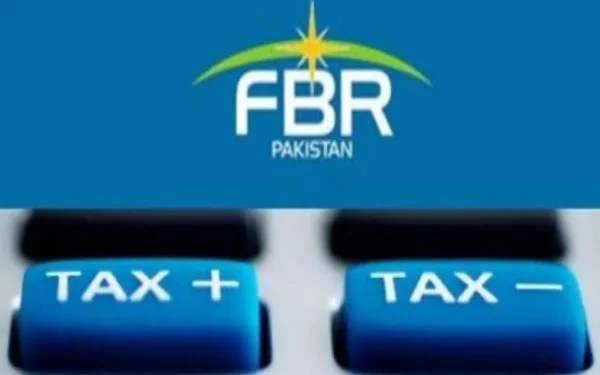Islamabad: The Federal Board of Revenue (FBR) has reported a revenue shortfall of Rs65 billion in August 2025, sparking concerns over Pakistan’s fiscal stability. The shortfall is attributed to a combination of declining electricity consumption, reduced industrial output, and the rollback of critical enforcement measures.
According to interim data, the FBR collected Rs1.635 trillion in August, against a monthly target of Rs1.7 trillion. While this represents a 13% increase (Rs190 billion) compared to the same period last year, the growth pace fell short of what was required to meet ambitious targets set under the current fiscal plan.
This slow performance early in the fiscal year is seen as a red flag, particularly at a time when Pakistan is under strict IMF monitoring and struggling to maintain revenue commitments.
Why Did the FBR Miss the August Target?
The FBR’s inability to achieve its revenue target is the result of several interconnected factors.
1. Decline in Power Consumption
A senior tax official revealed that taxes collected through electricity bills dropped from Rs125 billion in the previous fiscal year to Rs86 billion this year. The decline in electricity usage directly impacted sales tax and GST collections, reflecting reduced household and industrial energy demand.
This reduction is linked to sluggish economic activity, power tariff hikes discouraging consumption, and increasing reliance on alternative energy sources such as solar power.
2. Industrial Slowdown
The slowdown in Pakistan’s industrial and manufacturing sector also added pressure. With industries operating at reduced capacity due to energy shortages, high input costs, and weak demand, sales tax revenues dropped significantly.
Tax authorities confirmed that sales tax collection stood at Rs625 billion, falling Rs65 billion short of the target.
3. Rollback of Enforcement Measures
The government had initially introduced strict enforcement measures to plug revenue leakages, including requiring asset declarations for large purchases and treating cash deposits by traders as banking transactions.
However, many of these measures were delayed or rolled back due to pressure from business lobbies. This rollback caused the FBR to lose a potential source of significant revenue during August.
Breakdown of Revenue Collection in August
Despite the overall shortfall, some sectors performed better than expected.
- Income Tax: Rs695 billion collected in two months, aligning with the set target.
- Sales Tax: Rs625 billion collected, Rs65 billion less than the target due to weaker consumption and production.
- Federal Excise Duty (FED): Rs113 billion collected, slightly below the target.
- Customs Duty: Rs200 billion collected, surpassing the target, largely due to higher imports of petroleum products and raw materials.
In August alone, the FBR collected Rs887 billion against a target of Rs951 billion, representing a 12% year-on-year increase. However, officials argue that this growth rate is insufficient to meet the overall annual target.
The IMF Factor and Fiscal Challenges
The International Monetary Fund (IMF) is scheduled to review Pakistan’s economic progress in the third week of September. The FBR’s performance during the first quarter of FY2025-26 will be a critical component of the review.
Last year, the FBR had also missed its annual target by Rs1.2 trillion, which weakened Pakistan’s negotiating position with the IMF. Repeating this trend could trigger pressure for new taxation measures, subsidy cuts, or stricter fiscal reforms.
Finance Minister Muhammad Aurangzeb has already warned that if Parliament continues resisting revenue enforcement measures, the government might be forced to impose additional taxation worth Rs400–500 billion.
Structural Issues in Pakistan’s Tax System
The FBR’s difficulties in meeting its targets highlight deep-rooted structural weaknesses in Pakistan’s taxation system.
- Over-Reliance on Indirect Taxes: Pakistan’s tax system is heavily dependent on indirect taxes such as GST and FED, which are vulnerable to fluctuations in consumption and imports.
- Weak Enforcement: The withdrawal of strict measures indicates the government’s limited political will to confront powerful business lobbies.
- Narrow Tax Base: Less than 2% of the population pays direct income tax, leaving most of the burden on salaried individuals and consumption-based taxes.
- Energy and Industrial Crisis: Pakistan’s energy shortages, high inflation, and low investor confidence directly reduce the tax base.
Expert Opinions on the Shortfall
Economists and tax experts have voiced concerns over the August performance.
- Dr. Ashfaque Hassan Khan, a senior economist, said:
“The problem is not only enforcement rollback but also the structural imbalance of Pakistan’s economy. Without industrial revival, FBR cannot meet its ambitious revenue targets.” - Former FBR Chairman Shabbar Zaidi highlighted the impact of enforcement:
“The government’s retreat from documentation measures reflects weak governance. Unless Pakistan expands its tax net and strengthens compliance, the cycle of shortfalls will continue.”
Implications for Pakistan’s Economy
The revenue shortfall in August carries far-reaching consequences:
- Increased Fiscal Pressure: The government may have to rely on additional borrowing, leading to higher public debt.
- Risk of New Taxes: To meet IMF conditions, Pakistan may be forced to introduce supplementary taxation measures in the coming months.
- Development Cuts: Shortfalls in revenue could result in reduced Public Sector Development Program (PSDP) funding, affecting infrastructure and social projects.
- Investor Concerns: The inability to meet targets weakens investor confidence in Pakistan’s fiscal management.
Way Forward for FBR
Experts suggest several measures that could help the FBR recover from its current crisis:
- Digitalization and Automation: Fully digitizing tax collection to reduce leakages and underreporting.
- Broadening the Tax Base: Bringing retail, agriculture, and real estate sectors into the formal tax net.
- Strengthening Enforcement: Ensuring strict documentation and compliance without rolling back measures under pressure.
- Energy and Industrial Revival: Supporting industries and power consumers to indirectly boost tax collections.
Conclusion
The Rs65 billion revenue shortfall in August is more than just a statistical miss—it highlights Pakistan’s ongoing fiscal vulnerabilities. While the FBR showed growth compared to last year, the collection pace is insufficient to meet the ambitious targets set for FY2025-26.
With the IMF review approaching, the government faces a difficult balancing act between tax enforcement, political pressures, and economic growth. Unless structural reforms are implemented, the FBR will continue to face recurring shortfalls, jeopardizing Pakistan’s economic stability.

























